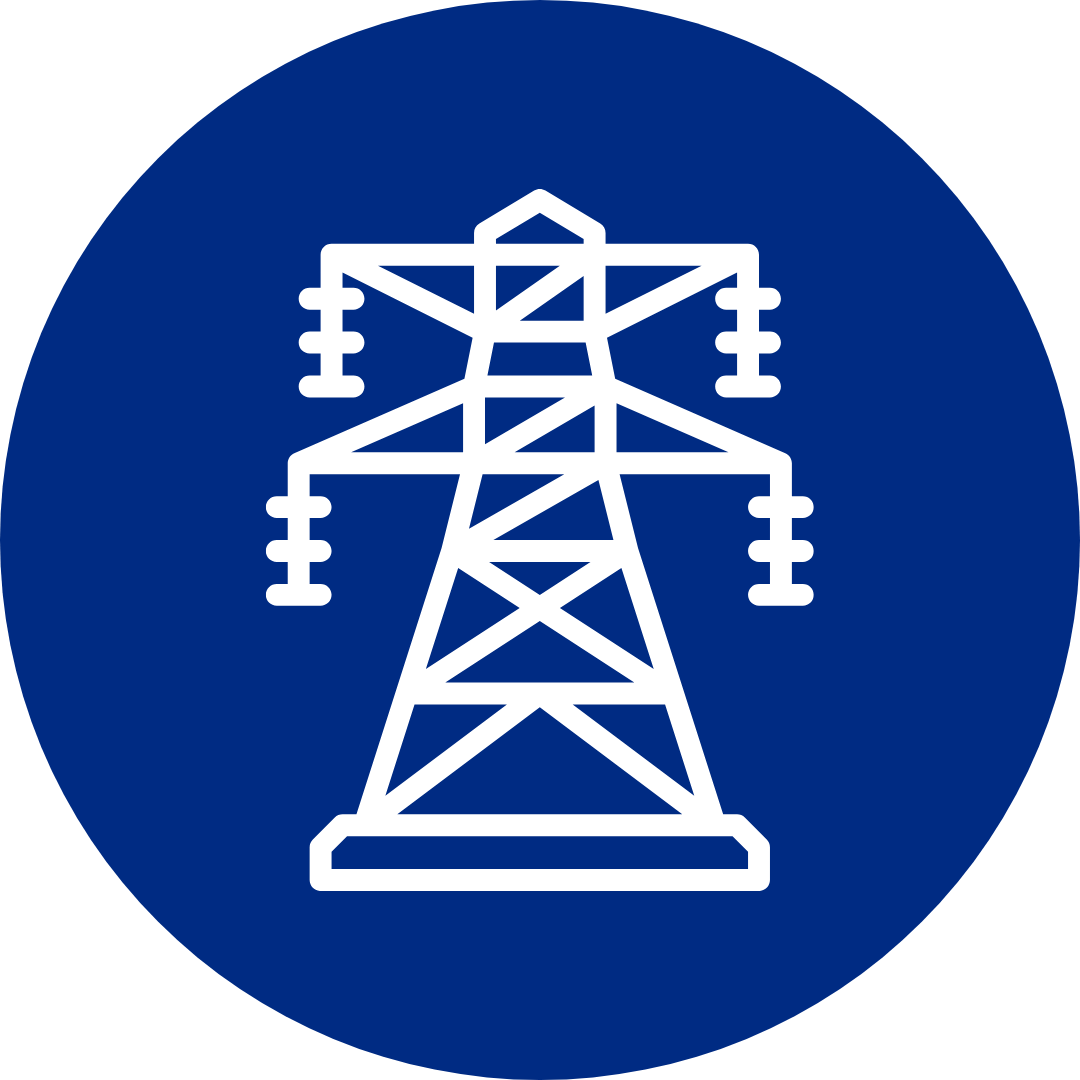As electric vehicles (EVs) continue to grow in popularity, the need for reliable and efficient charging solutions becomes increasingly important. Choosing the right EV charging cable is crucial to ensure your vehicle charges safely and efficiently.
At Cableworld, we’re leading suppliers of specialist electrical cables in the UK, offering a wide range of EV charging cables and accessories suited for any job or project. In this guide, we’ll look at the different types of EV charging cables available and their specific uses.
Types of EV Charging Cables
EV charging cables, also known as electric vehicle charging cables, are essential for connecting EVs to charging stations. These cables come with specific connectors that must be compatible with both the vehicle and the charging station. Selecting the right cable ensures efficient charging and prevents potential damage to the vehicle's electrical system.
Type 1 EV Charging Cables
Type 1 connectors, often found on older or imported EVs from North America and some Asian markets, are single-phase with a 5-pin design. These connectors provide a simple and effective way to charge your vehicle.
Type 1 charging cables are typically used for home charging stations and are compatible with vehicles that have Type 1 inlets, such as the Nissan Leaf and Mitsubishi Outlander PHEV.
Type 2 EV Charging Cables
Type 2 connectors are the standard in Europe and are becoming increasingly common worldwide. Capable of handling both single-phase and three-phase power, these connectors offer greater versatility than Type 1 connectors.
Type 2 charging cables are suitable for both home and public charging stations and can be used with a wide range of modern EVs, including the BMW i3, Tesla Model S, and Renault Zoe. At Cableworld, we provide Type 2 to Type 2 EV Charging Cables designed for efficient and reliable charging of vehicles with Type 2 connectors.
Type 1 to Type 2 Adapter Cables
Type 1 to Type 2 adapter cables are essential for ensuring compatibility between different types of EV connectors. These adapters allow vehicles with Type 1 connectors to charge at Type 2 charging stations, bridging the gap between different standards.
This ensures that EV owners can charge their vehicles at more locations, regardless of the connector type. The Type 1 to Type 2 EV Adapter Cable from Cableworld enables Type 1 vehicles to connect to Type 2 chargers, providing compatibility and flexibility for diverse charging needs.
Cableworld's EV Charging Cable Range
EV-Ultra® Cable
The EV-Ultra® charging cable is a cutting-edge solution tailored specifically for electric vehicle charge points. This cable combines power conductors with a screened 2-core data cable, all within a double-sheathed design, providing enhanced protection and versatility.
Key Features
Power and Data Combined: The integration of power and data cables within a single sheath simplifies installation and enhances functionality.
Double-Sheathed Design: This design ensures robust protection against environmental factors and mechanical damage.
Versatile Installation Options: The EV-Ultra® cable can be installed in various ways, including air installations, surface clipping, cable tray/ladder work, and embedding in concrete.
Suitable for Direct Ground Installation: With appropriate mechanical protection, this cable is suitable for direct burial, making it a versatile choice for various installation environments.
EV-Ultra® + Cat5e Cable
The EV-Ultra® + Cat5e cable builds on the foundation of the EV-Ultra® by incorporating Cat5e data capabilities. This makes it an ideal choice for installations requiring both power and high-speed data transmission.
Key Features
Integration of Power Conductors and 2-Core Screened Data Cable: This design meets the needs of modern EV charge points, providing both power and reliable data transmission.
Availability in 3-Core and 5-Core Variations: These variations ensure compatibility with both single-phase and three-phase EV charge points.
Compliance with Single and Three-Phase EV Charge Points: The cable meets the specific requirements of various charging systems, ensuring broad compatibility.
Versatile Installation Options: Similar to the EV-Ultra® cable, this version supports multiple installation methods, including air, surface clipping, cable tray/ladder work, and embedding in concrete.
Regulatory Compliance and Challenges
In the UK, the absence of a recognised British Standard for EV charging cables presents a challenge for installers. According to BS7671, installers are responsible for ensuring the safety and compliance of the equipment they use, even when it is not covered by national or international standards.
Third-Party Accreditation and Validation
Full third-party accreditation is crucial to demonstrate the safety and performance of EV charging cables. This accreditation provides installers with the confidence that the cables meet rigorous safety and performance standards.
Cableworld’s EV-Ultra® cables have undergone thorough third-party testing and accreditation through BASEC (British Approvals Service for Cables).
The BASEC accreditation process is as follows:
The accreditation process involves rigorous testing to ensure the cables meet the highest safety and performance standards.
The EV-Ultra® cables received positive feedback from the BASEC Data Laboratory manager, which highlighted that “the data properties of the cable had exceeded all expectations,”, underscoring the dedication of our Research and Development team. This accreditation adds significant value, providing installers with a reliable and accredited product they can trust.
Advanced Features of EV-Ultra®
The EV-Ultra® cable incorporates CarbonTek technology, a specially developed compound that enhances its performance and durability.
The high abrasion resistance ensures the cable can withstand harsh conditions and physical wear, and impact resistance protects the cable from damage due to physical impacts.
With thermal and UV stability, the cable’s performance is maintained even in extreme temperatures and when exposed to sunlight for a prolonged amount of time.
Thanks to the enhanced flexibility of the cable, the installation process becomes much simpler, quicker and neater.
EV-Ultra® incorporates screened, twisted pair data cables and a lay length designed to reduce interference. Third-party data testing under BASEC approval confirms the successful design solution, ensuring excellent data transmission without interference.
By choosing Cableworld’s specialised EV charging cables, you can ensure efficient, reliable, and compliant charging solutions for your electric vehicle needs.
Choosing the Right EV Charging Cable
Selecting the correct EV charging cable is important for ensuring the safe and efficient charging of electric vehicles.
Vehicle Compatibility
Make sure the cable is compatible with your vehicle’s connector type (Type 1 or Type 2). Check your vehicle’s manual or contact the manufacturer if you’re unsure.
Charging Station Compatibility
Verify that the cable matches the connector type of the charging station you plan to use. Many public charging stations in Europe use Type 2 connectors.
Cable Length
Choose a cable length that suits your typical charging setup. Longer cables offer more flexibility but can be more cumbersome to store and manage.
Power Rating
Consider the power rating of the cable to match your vehicle’s charging capabilities. Higher-rated cables can handle faster charging speeds.
Installation Requirements
Make sure the cable is suitable for your intended installation environment, whether it’s for home, public, or commercial use. Check for features like weather resistance and mechanical protection if the cable will be exposed to harsh conditions.
EV Charging Cables FAQs
What is the difference between Type 1 and Type 2 EV charging cables?
Type 1 connectors are typically used with older or imported EVs and are single-phase, whereas Type 2 connectors are the European standard and can handle both single-phase and three-phase power, making them more versatile.
Can I use a Type 1 to Type 2 adapter cable for any vehicle?
Yes, a Type 1 to Type 2 adapter cable allows vehicles with Type 1 connectors to charge at stations with Type 2 connectors. However, always ensure the adapter is compatible with your specific vehicle and charging station.
What are the benefits of using EV-Ultra® cables?
EV-Ultra® cables offer a combination of power and data transmission in a single cable, enhanced protection with a double-sheathed design, versatility in installation options, and advanced features like CarbonTek technology for improved durability and flexibility.
How do I ensure my EV charging cable is compliant with safety regulations?
Use cables that have third-party accreditation, such as those from BASEC, which confirms they meet rigorous safety and performance standards. Follow the installation and usage guidelines outlined by relevant regulations like BS7671.
What should I consider when installing EV charging cables?
Consider the installation environment, cable length, power rating, and compliance with safety regulations. Ensure the cable is installed securely and protected from environmental factors. Professional installation by a qualified electrician is recommended for optimal safety and performance.
Alarm Cable
Arctic Grade Cable
Armoured Cable
Audio & Speaker Cable
Auto Cable
Bare Copper
Belden Equivalent Cable
Co-axial Cable
Data Cable
DC Telecom Cable
Defence Standard Cable
Emergency Lighting & Fire Detection Cable
EV Cable
Festoon
![Loose Tube Fibre Cross Section]()
Fixed Wiring PVC & LSOH Cable
Flatform
Flexible Control Cable
Flexible PVC Cable
Flexible Rubber Cable
General Wiring Cable PVC & LSOH
High Temperature Cable
High Voltage Cable
![5308 p1 t2 cat Cross Section]()
LSOH Flexible Cable
Medium Voltage Cable
NYY & N2XH Cable
Protected Wiring Cable
Silicone Cable
Solar Cable
Split Concentric Cable
Spiral Cable
Temporary Power Cable
Tri-Rated Cable
Welding Cable
Alarm Cable
Arctic Grade Cable
Armoured Cable
Audio & Speaker Cable
Auto Cable
Bare Copper
Belden Equivalent Cable
Co-axial Cable
Data Cable
DC Telecom Cable
Defence Standard Cable
Emergency Lighting & Fire Detection Cable
EV Cable
Festoon
![Loose Tube Fibre Cross Section]()
Fixed Wiring PVC & LSOH Cable
Flatform
Flexible Control Cable
Flexible PVC Cable
Flexible Rubber Cable
General Wiring Cable PVC & LSOH
High Temperature Cable
High Voltage Cable
![5308 p1 t2 cat Cross Section]()
LSOH Flexible Cable
Medium Voltage Cable
NYY & N2XH Cable
PAS - BS5308 Instrumentation Cable
Protected Wiring Cable
RS-232 Cable
RS-485 Cable
Silicone Cable
Solar Cable
Split Concentric Cable
Spiral Cable
Telephone Cable
Traffic Signal Cables
Temporary Power Cable
Tri-Rated Cable
Welding Cable
Airports
Automation & Process Control
![Automotive]()
Building & Construction
Communication & Telecommunication
Data Centres
Defence
![DNO 1]()
E-Mobility
Food & Beverage
Marine & Offshore
Mining, Drilling & Tunnelling
OEMs
Oil, Gas & Petrochemical
Rail & Metro
Renewable Energy
Switchgear
Power
Water Treatment













































